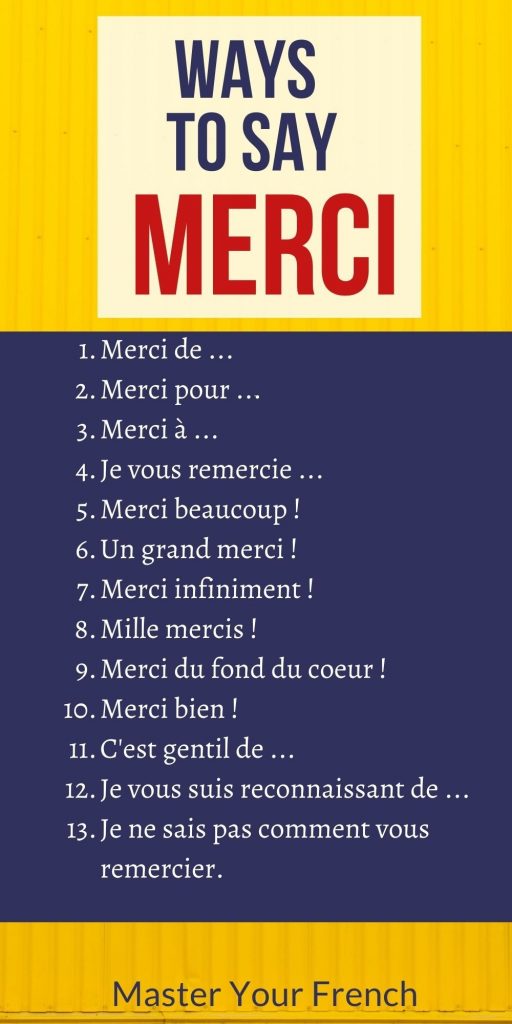Expressing Gratitude: How to Say “Thank You in French”

Learning to say “thank you” in a different language is not only a polite gesture but also a gateway into understanding and appreciating another culture. French, being one of the most spoken languages in the world, offers several ways to express gratitude. Whether you’re planning a trip to France, speaking with a French friend, or simply expanding your linguistic skills, knowing how to say “thank you in French” can be incredibly rewarding.
Key Takeaways

- The most common way to say “thank you” in French is “merci.”
- There are various expressions for different levels of formality and gratitude.
- Understanding cultural nuances enhances the effectiveness of your expressions of thanks.
The Basics of Saying “Thank You in French”
The simplest and most widely used expression for “thank you” in French is “merci.” This word is versatile and can be used in most situations, whether you’re thanking someone for a small favor or expressing gratitude for a significant gesture. “Merci” is universally understood and appreciated across French-speaking regions.

Adding Emphasis: “Merci Beaucoup”
If you wish to express a deeper level of gratitude, you can say “merci beaucoup,” which translates to “thank you very much.” This phrase is appropriate in situations where a simple “merci” might not fully convey your appreciation. It’s a polite and effective way to emphasize your thankfulness.
Formal Expressions of Gratitude
In more formal settings, such as business meetings or official events, it’s beneficial to use expressions that reflect the formality of the occasion. One such phrase is “je vous remercie,” which means “I thank you.” This expression is more formal than “merci” and is suitable for professional or formal interactions.

Expressing Extreme Gratitude
When you are extremely grateful and want to convey a sense of heartfelt appreciation, you can use the phrase “merci infiniment,” meaning “thank you infinitely.” This expression is less common but can be used to express profound gratitude in situations where someone has gone above and beyond to help you.
Cultural Nuances in Expressing Gratitude
Understanding cultural nuances is crucial when expressing gratitude in French. In France, politeness and formality are highly valued, and using the appropriate level of formality in your expressions of thanks can enhance your interactions.
The Importance of Politeness
French culture places a significant emphasis on politeness and etiquette. When saying “thank you in French,” it’s important to accompany your words with polite gestures, such as a smile or nod. This consideration is particularly important in formal settings, where the right tone and body language can make a positive impression.
Regional Variations
While “merci” is universally understood, there are regional variations in how gratitude is expressed. In Quebec, for instance, you might hear “merci bien,” which means “thank you kindly.” Understanding these regional differences can enhance your communication and show respect for the local culture.
Practical Tips for Using “Thank You in French”
Now that you know the various ways to say “thank you in French,” here are some practical tips to help you use these expressions effectively:
- Practice Pronunciation: Accurate pronunciation is key to being understood. Listen to native speakers and practice saying the phrases out loud.
- Match the Context: Use the appropriate level of formality based on the situation and the relationship you have with the person you’re thanking.
- Be Sincere: Genuine gratitude is always appreciated. Ensure that your tone of voice and body language reflect your sincerity.
Learning to say “thank you in French” is a valuable skill that can enrich your interactions and deepen your appreciation for the French language and culture. Whether you opt for a simple “merci” or a more formal “je vous remercie,” understanding the nuances of these expressions will enhance your communication and help you connect more meaningfully with French speakers. Remember, expressing gratitude is not just about words; it’s about conveying genuine appreciation and respect.
By mastering these expressions and understanding their cultural context, you’ll be well-equipped to navigate any French-speaking environment with confidence and grace.